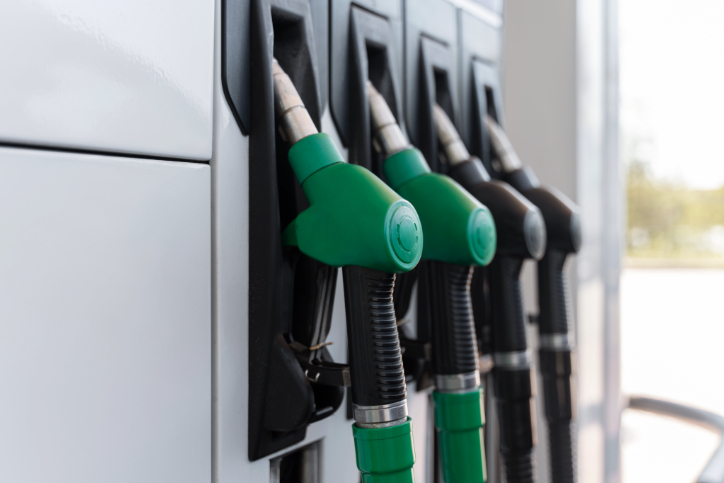Which Fuel is Best for the Environment and Your Fleet?
20/05/2024

As businesses strive to become more environmentally responsible and cost-efficient, the choice of fuel for their vehicle fleets has become increasingly important. With various fuel options available, it can be challenging to determine which one is the best for both the environment and your fleet's performance.
Understanding the Different Fuel Types
Before diving into the environmental and economic impacts, it's crucial to understand the different fuel types available for fleet vehicles:
1. Petrol (Gasoline)
2. Diesel
3. Electric
4. Hybrid (Petrol-Electric or Diesel-Electric)
5. Hydrogen Fuel Cells
6. Biofuels (Biodiesel and Ethanol)
Petrol
Environmental Impact:
- Petrol vehicles typically produce higher CO2 emissions than diesel.
- However, they emit fewer nitrogen oxides (NOx) and particulates compared to diesel engines.
Economic Considerations:
- Petrol is generally cheaper to purchase than diesel.
- Petrol engines are often less fuel-efficient, leading to higher fuel costs over time.
Suitability for Fleets:
- Ideal for fleets with lower mileage and urban driving where NOx emissions are a concern.
Diesel
Environmental Impact:
- Diesel engines produce lower CO2 emissions per mile compared to petrol.
- However, they emit higher levels of NOx and particulates, which are harmful pollutants.
Economic Considerations:
- Diesel engines are more fuel-efficient, offering better mileage and lower fuel costs.
- Maintenance costs can be higher due to the complexity of diesel engines.
Suitability for Fleets:
- Best suited for high-mileage fleets and long-distance driving due to fuel efficiency.
Electric
Environmental Impact:
- Electric vehicles (EVs) produce zero tailpipe emissions, significantly reducing greenhouse gases.
- The environmental benefit depends on the source of electricity; renewable energy sources enhance the positive impact.
Economic Considerations:
- Higher initial purchase cost but lower running and maintenance costs.
- Government incentives and lower electricity costs can offset the initial investment.
Suitability for Fleets:
- Ideal for urban fleets with predictable routes and access to charging infrastructure.
- Suitable for companies aiming to enhance their green credentials.
Hybrid
Environmental Impact:
- Hybrids combine petrol or diesel engines with electric motors, reducing overall emissions.
- They offer lower CO2 emissions compared to conventional petrol or diesel vehicles.
Economic Considerations:
- Higher upfront costs but better fuel efficiency and lower running costs.
- Maintenance can be more complex due to the dual powertrain.
Suitability for Fleets:
- Good for mixed driving conditions, offering flexibility and reduced emissions.
- Beneficial for businesses transitioning to greener technologies.
Hydrogen Fuel Cells
Environmental Impact:
- Hydrogen vehicles produce only water vapor as emissions, making them extremely clean.
- The environmental impact depends on how the hydrogen is produced; green hydrogen from renewable sources is ideal.
Economic Considerations:
- High initial costs and limited refueling infrastructure.
- Fuel costs can be higher, but prices are expected to decrease with technology advancements.
Suitability for Fleets:
- Suitable for long-distance and heavy-duty vehicles due to fast refueling times.
- Best for companies willing to invest in cutting-edge technology and infrastructure.
Biofuels
Environmental Impact:
- Biofuels like biodiesel and ethanol are renewable and produce lower CO2 emissions.
- The production process can still generate emissions, so the overall impact varies.
Economic Considerations:
- Can be cost-effective and compatible with existing engines with minor modifications.
- Availability and fuel quality can be inconsistent.
Suitability for Fleets:
- Good transitional option for fleets looking to reduce emissions without significant vehicle investment.
- Suitable for companies with access to reliable biofuel supplies.
Making the Right Choice for Your Fleet
Choosing the best fuel for your fleet involves balancing environmental impact, economic considerations, and operational needs. Here are some steps to help you decide:
1. Assess Your Fleet's Driving Patterns: Consider the average mileage, route types, and vehicle usage.
2. Evaluate Environmental Goals: Determine your company’s sustainability targets and how each fuel option aligns with them.
3. Calculate Total Cost of Ownership: Include purchase price, fuel costs, maintenance, and potential incentives.
4. Infrastructure and Availability: Ensure that the necessary refueling or charging infrastructure is available and practical for your fleet.
The choice of fuel for your fleet is a critical decision that impacts both your environmental footprint and operational costs. By carefully evaluating the options and considering your specific needs, you can make an informed choice that benefits both your business and the planet.
This article is designed to offer general advice and may not apply to every insurance, broker, insurer, cover or policy. You would need to check the individual policy benefits of each cover with your insurer or broker.




